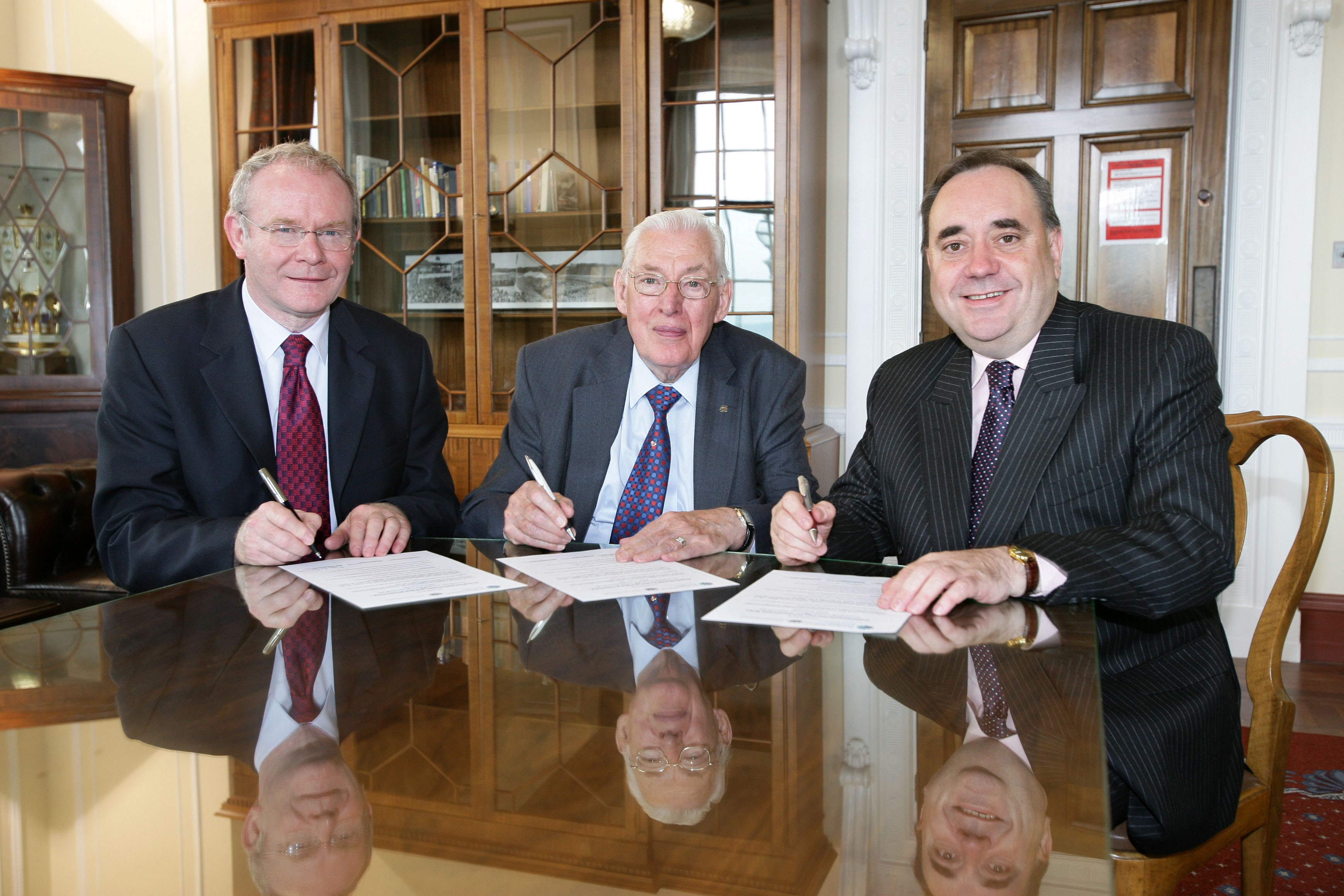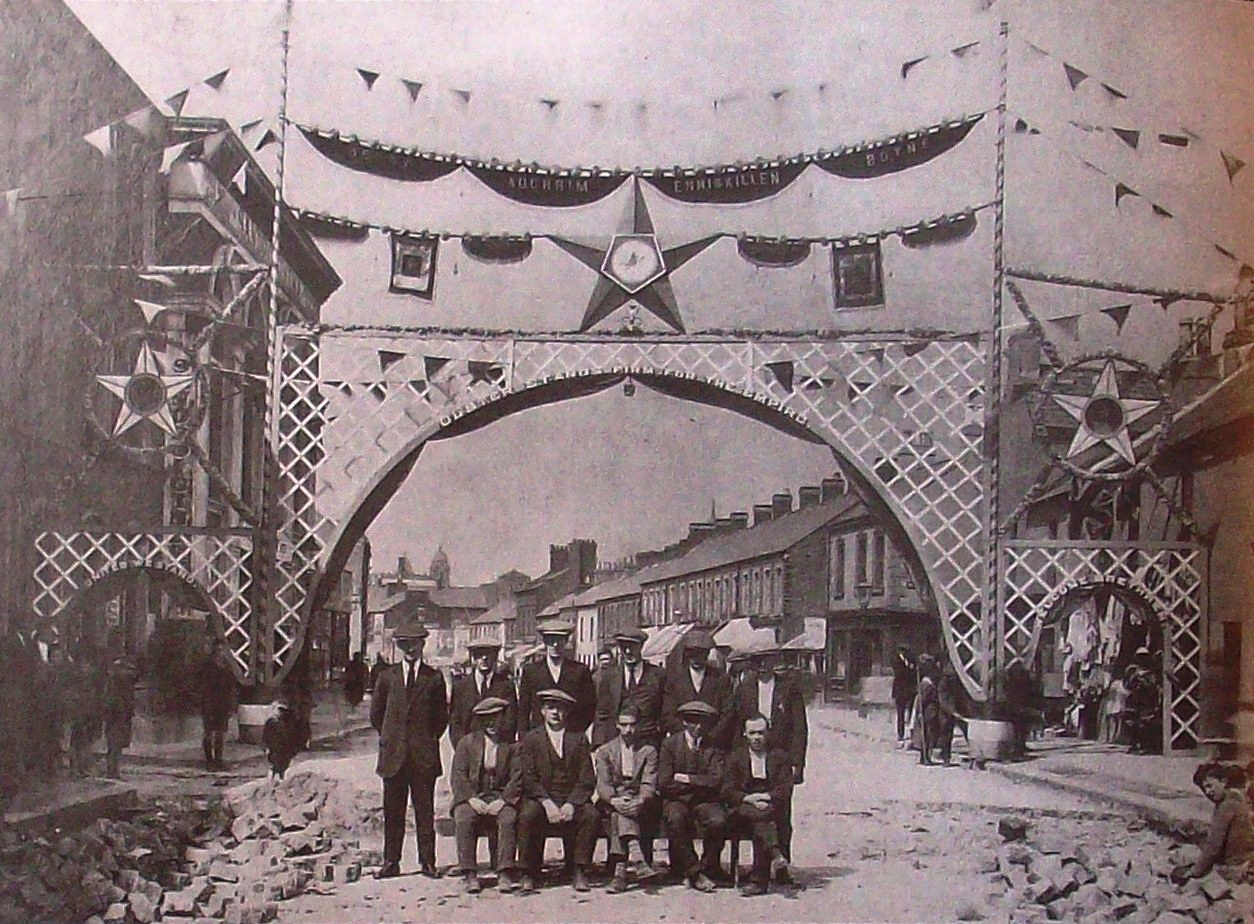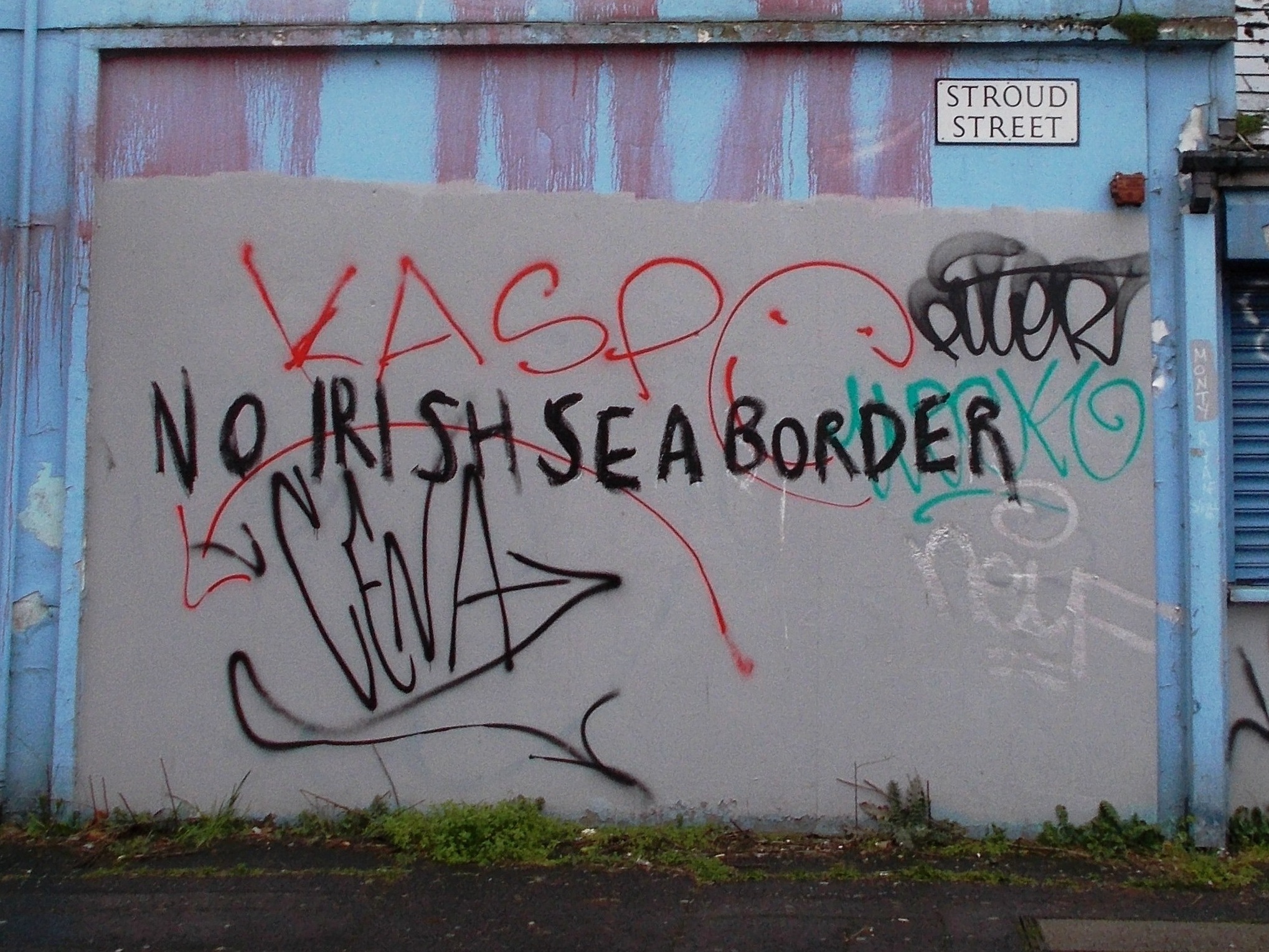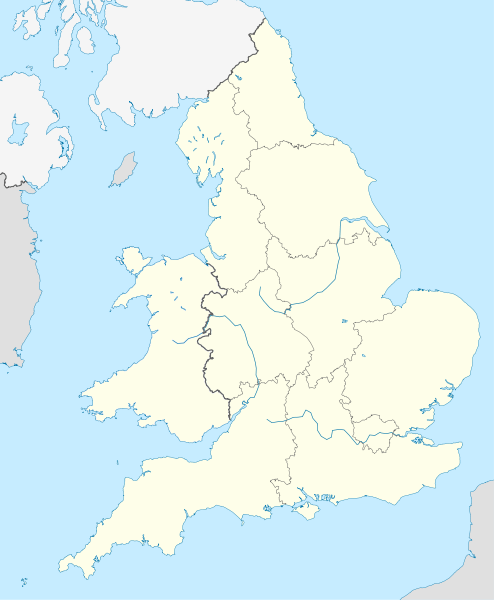|
2021 In Northern Ireland
Events from the year 2021 in Northern Ireland. Incumbents * First Minister of Northern Ireland ** Arlene Foster (until 14 June) ** ''Vacant'' (14 - 17 June) ** Paul Givan (from 17 June) *deputy First Minister of Northern Ireland – Michelle O'Neill *Secretary of State for Northern Ireland – Brandon Lewis Events January *1 January - First freight arrives in Northern Ireland after the Irish Sea Border comes into effect under the Provisions of the Northern Ireland Protocol. *5 January - Education Executive announces AQE/GL transfer tests will not go ahead, then AQE announces they will hold one exam in late February, postponed for a second time. *6 January – Education Minister Peter Weir announces that GCSE, AS Level and A Level exams scheduled for summer 2021 will be cancelled because of the COVID-19 pandemic. *9 January – Lorry drivers from Northern Ireland travelling directly to France from the Irish Republic have been told they will need a recent negative COVID t ... [...More Info...] [...Related Items...] OR: [Wikipedia] [Google] [Baidu] |
First Minister And Deputy First Minister Of Northern Ireland
The First Minister and deputy First Minister of Northern Ireland are the joint heads of government of the Northern Ireland Executive and have overall responsibility for the running of the Executive Office. Despite the different titles for the two offices, the two positions have the same governmental power, resulting in a duumvirate; the deputy First Minister is not subordinate to the First Minister. Created under the terms of the 1998 Good Friday Agreement, both were initially nominated and appointed by members of the Northern Ireland Assembly on a joint ticket by a cross-community vote, using consociational principles. That process was changed following the 2006 St Andrews Agreement, meaning that the First Minister is nominated by the largest party overall, and the deputy First Minister is nominated by the largest party in the next largest community designation. On 17 June 2021, despite a letter from the Democratic Unionist Party chairman and other senior party members, DUP leade ... [...More Info...] [...Related Items...] OR: [Wikipedia] [Google] [Baidu] |
Good Friday Agreement
The Good Friday Agreement (GFA), or Belfast Agreement ( ga, Comhaontú Aoine an Chéasta or ; Ulster-Scots: or ), is a pair of agreements signed on 10 April 1998 that ended most of the violence of The Troubles, a political conflict in Northern Ireland that had prevailed since the late 1960s. It was a major development in the Northern Ireland peace process of the 1990s. It is made up of the Multi-Party Agreement between most of Northern Ireland's political parties, and the BritishIrish Agreement between the British and Irish governments. Northern Ireland's present devolved system of government is based on the agreement. Issues relating to sovereignty, governance, discrimination, military and paramilitary groups, justice and policing were central to the agreement. It restored self-government to Northern Ireland on the basis of "power sharing" and it included acceptance of the principle of consent, commitment to civil and political rights, cultural parity of esteem, police r ... [...More Info...] [...Related Items...] OR: [Wikipedia] [Google] [Baidu] |
Police Service Of Northern Ireland
The Police Service of Northern Ireland (PSNI; ga, Seirbhís Póilíneachta Thuaisceart Éireann; Ulster Scots dialects, Ulster-Scots: ') is the police, police force that serves Northern Ireland. It is the successor to the Royal Ulster Constabulary (RUC) after it was reformed and renamed in 2001 on the recommendation of the Patten Report. Although the majority of PSNI officers are Ulster Protestants, this dominance is not as pronounced as it was in the RUC because of Affirmative action, positive action policies. The RUC was a militarised police force and played a key role in policing the violent conflict known as the Troubles. As part of the Good Friday Agreement, there was an agreement to introduce a new police service initially based on the body of constables of the RUC. As part of the reform, an Independent Commission on Policing for Northern Ireland (the Patten Commission) was set up, and the RUC was replaced by the PSNI on 4 November 2001. The Police (Northern Ireland) Act ... [...More Info...] [...Related Items...] OR: [Wikipedia] [Google] [Baidu] |
Sandy Row
Sandy Row () is a large inner city estate in south Belfast, Northern Ireland. It lends its name to the surrounding residential community, which is predominantly Protestant working-class. The Sandy Row area had a population of 2,153 in 2001; in 2018, the population was estimated to be around 4,000. It is a staunchly loyalist area of Belfast, being a traditional heartland for affiliation with the paramilitary Ulster Defence Association (UDA) and the Orange Order. Location Sandy Row is in south Belfast, beginning at the edge of the city centre, close to the Europa Hotel. The road runs south from the Boyne Bridge over the old Dublin railway line beside Great Victoria Street station, then crosses Donegall Road and ends at the bottom of Lisburn Road. At the north end of the road was Murray's tobacco factory, opened in 1810, while at the other is a large Orange hall. History Formerly known as Carr's Row, Sandy Row is one of the oldest residential areas of Belfast. Its growth in po ... [...More Info...] [...Related Items...] OR: [Wikipedia] [Google] [Baidu] |
Bobby Storey
Robert Storey (11 April 1956 – 21 June 2020) was a Provisional Irish Republican Army (IRA) member from Belfast, Northern Ireland. Prior to an 18-year conviction for possessing a rifle, he also spent time on remand for a variety of charges and in total served 20 years in prison. He also played a key role in the Maze Prison escape, the biggest prison break in British penal history. Early life The family was originally from the Marrowbone area, on the Oldpark Road in North Belfast. The family had to move when Storey was very young due to Ulster loyalist attacks on the district, moving to Manor Street, an interface area also in North Belfast. Storey's uncle was boxing trainer Gerry Storey and his father, also called Bobby, was involved in the defence of the area in the 1970s when Catholics were threatened by loyalists. Storey was one of four children. He had two brothers, Seamus and Brian, and a sister Geraldine. Seamus and Bobby senior had been arrested after a raid on their h ... [...More Info...] [...Related Items...] OR: [Wikipedia] [Google] [Baidu] |
Sinn Féin
Sinn Féin ( , ; en, " eOurselves") is an Irish republican and democratic socialist political party active throughout both the Republic of Ireland and Northern Ireland. The original Sinn Féin organisation was founded in 1905 by Arthur Griffith. Its members founded the revolutionary Irish Republic and its parliament, the First Dáil, during the Irish War of Independence. The party split in the aftermath of the Irish Civil War, giving rise to the two traditionally dominant parties of southern Irish politics: Fianna Fáil, and Cumann na nGaedheal (which became Fine Gael). For several decades the remaining Sinn Féin organisation was small without parliamentary representation. Another split in 1970 at the start of the Troubles led to the Sinn Féin of today, with the other faction eventually becoming the Workers' Party. During the Troubles, Sinn Féin was associated with the Provisional Irish Republican Army (IRA). For most of that conflict, there were broadcasting bans on Si ... [...More Info...] [...Related Items...] OR: [Wikipedia] [Google] [Baidu] |
Belfast
Belfast ( , ; from ga, Béal Feirste , meaning 'mouth of the sand-bank ford') is the capital and largest city of Northern Ireland, standing on the banks of the River Lagan on the east coast. It is the 12th-largest city in the United Kingdom and the second-largest in Ireland. It had a population of 345,418 . By the early 19th century, Belfast was a major port. It played an important role in the Industrial Revolution in Ireland, briefly becoming the biggest linen-producer in the world, earning it the nickname "Linenopolis". By the time it was granted city status in 1888, it was a major centre of Irish linen production, tobacco-processing and rope-making. Shipbuilding was also a key industry; the Harland and Wolff shipyard, which built the , was the world's largest shipyard. Industrialisation, and the resulting inward migration, made Belfast one of Ireland's biggest cities. Following the partition of Ireland in 1921, Belfast became the seat of government for Northern Ireland ... [...More Info...] [...Related Items...] OR: [Wikipedia] [Google] [Baidu] |
Derry
Derry, officially Londonderry (), is the second-largest city in Northern Ireland and the fifth-largest city on the island of Ireland. The name ''Derry'' is an anglicisation of the Old Irish name (modern Irish: ) meaning 'oak grove'. The old walled city lies on the west bank of the River Foyle, which is spanned by two road bridges and one footbridge. The city now covers both banks (Cityside on the west and Waterside on the east). The population of the city was 83,652 at the 2001 Census, while the Derry Urban Area had a population of 90,736. The district administered by Derry City and Strabane District Council contains both Londonderry Port and City of Derry Airport. Derry is close to the border with County Donegal, with which it has had a close link for many centuries. The person traditionally seen as the founder of the original Derry is Saint , a holy man from , the old name for almost all of modern County Donegal, of which the west bank of the Foyle was a part before 1 ... [...More Info...] [...Related Items...] OR: [Wikipedia] [Google] [Baidu] |
2021 Northern Ireland Riots
A series of riots in Ulster loyalism, loyalist areas of Northern Ireland began in Waterside, Derry, Waterside, Derry, on 30 March 2021. After four nights of rioting in Derry, disturbances spread to south Belfast on 2 April, where a loyalist protest developed into a riot involving iron bars, bricks, masonry and petrol bombs. Following this, civil unrest spread to Newtownabbey on 3 April, where cars were hijacked and burnt, and petrol bombs were also used against police. Carrickfergus in southern County Antrim also saw serious civil unrest on the night of 4 April and morning of 5 April, where loyalists created roadblocks to keep police out of local estates and threw petrol bombs at police vehicles. Background The riots occurred within a background of tension within loyalism in Northern Ireland. Irish Sea border Loyalists and unionists argued that Northern Ireland Protocol, post-Brexit trading arrangements have created barriers between Northern Ireland and t ... [...More Info...] [...Related Items...] OR: [Wikipedia] [Google] [Baidu] |
Loyalism
Loyalism, in the United Kingdom, its overseas territories and its former colonies, refers to the allegiance to the British crown or the United Kingdom. In North America, the most common usage of the term refers to loyalty to the British Crown, notably with the loyalists opponents of the American Revolution, and United Empire Loyalists who moved to other colonies in British North America after the revolution. Historical loyalism 18th century North America In North America, the term ''loyalist'' characterised colonists who rejected the American Revolution in favour of remaining loyal to the king. American loyalists included royal officials, Anglican clergymen, wealthy merchants with ties to London, demobilised British soldiers, and recent arrivals (especially from Scotland), as well as many ordinary colonists who were conservative by nature and/or felt that the protection of Britain was needed. Colonists with loyalist sympathies accounted for an estimated 15 per cent to 20 ... [...More Info...] [...Related Items...] OR: [Wikipedia] [Google] [Baidu] |
2021 United Kingdom Census
The decennial 2021 censuses of England and Wales and of Northern Ireland took place on 21 March 2021, and the census of Scotland took place on 20 March 2022. The censuses were administered by the Office for National Statistics (ONS) in England and Wales, by the Northern Ireland Statistics and Research Agency (NISRA) in Northern Ireland, and by the National Records of Scotland in Scotland. These were the first British censuses for which most of the data was gathered online, and two of them went ahead despite the COVID-19 pandemic, in part because the information obtained will assist government and public understanding of the pandemic's impact. Enumeration in Scotland was postponed, and took place in 2022, the plans for it having been delayed because of the pandemic. The censuses in 2021 and 2022 follows on from Beyond 2011, a project by the UK Statistics Authority to assess the value, cost, and alternatives to a census in 2021. The project recommended a census in 2021, and amongst ... [...More Info...] [...Related Items...] OR: [Wikipedia] [Google] [Baidu] |




.jpg)
.png)


